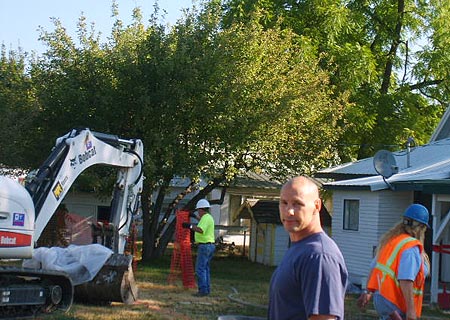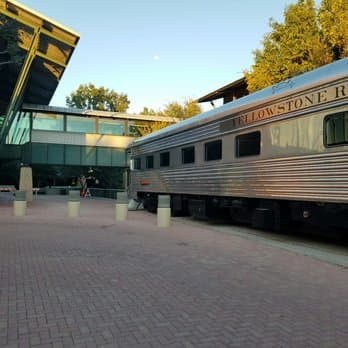The fight for justice in Libby, Montana, has taken a devastating turn as the Center for Asbestos Related Disease (CARD Clinic) faces closure after a court ruling that allows BNSF Railway to seize its assets. This shocking decision not only affects a critical healthcare provider for asbestos-related illnesses but also puts the lives of countless residents at risk.
Patients Left in Limbo
Residents like 81-year-old Gayla Benefield are grappling with the reality of their compromised health without access to the specialized care they desperately need. Benefield, who has asbestosis, recalls the white dust that enveloped her father when he returned from working at a vermiculite mine, unaware of the dangers that lay ahead. The clinic, which has served over 8,900 patients, provided essential screenings for illnesses that can take decades to manifest. As reported by NPR, nearly a third of its patients were newly diagnosed, highlighting the ongoing legacy of asbestos exposure in the community.
BNSF"s Legal Maneuvers Raise Ethical Concerns
BNSF Railway"s legal actions raise serious ethical questions about corporate accountability and the lengths corporations will go to evade responsibility. The lawsuit, filed under the False Claims Act, alleges that CARD defrauded the government by misdiagnosing patients. However, clinic leaders maintain that the diagnoses were made based on established radiological guidelines, as stated in a source from public health experts who emphasize the urgent need for recognition of asbestos-related diseases as a global threat.

Montana Town Suffers from Asbestos Contamination : NPR
Federal Funding Under Siege
Adding insult to injury, CARD"s survival hangs by a thread as federal funding is under threat from the current administration. The clinic relies on a federal grant that constitutes 80% of its operating budget. As noted by Montana legislative records, cutting this grant would spell disaster for the clinic and its patients. The uncertainty surrounding funding has left clinic officials scrambling to secure resources while they fight BNSF’s court decision.
Community Health Risks Escalate
The implications of losing the CARD clinic extend beyond immediate healthcare access. With local providers ill-equipped to diagnose and treat asbestos-related diseases, the community faces a public health crisis. According to oncologist Robert Kratzke, diagnosing these diseases requires specialized knowledge that is often lacking in rural areas. As he stated, "Most physicians would be modestly clueless about what to look for," compounding the risks for patients like Benefield and her family.

Montana State Capitol Building - GSD Website
Call to Action for Justice
The situation in Libby is a stark reminder of the intersection between environmental justice and healthcare access. The fight against asbestos-related diseases is not just a local issue but a national one that demands immediate attention. If we allow corporations like BNSF to prioritize profit over human lives, we risk normalizing a culture of environmental negligence. The community"s health should never be sacrificed on the altar of corporate greed. As the fight for the CARD Clinic continues, it is imperative that we amplify the voices of those affected and hold corporations accountable for their actions.







![[Video] Gunfire between Iraqi security forces and Sadr militias in Baghdad](/_next/image?url=%2Fapi%2Fimage%2Fthumbnails%2Fthumbnail-1768343508874-4redb-thumbnail.jpg&w=3840&q=75)
